There are educators everywhere working to teach the next generation of sustainability minded students. Whether in formal settings (K-12, undergraduate, graduate) settings or informally as science communication now it is more important than ever to work towards advancing Conservation Tech education.
The United Nations released the 17 Sustainable Development Goals (SDGs) which have served as a framework for educators in this space. Educating with a sustainable focus is a challenge whether you are interested in engineering, public policy, AI, or behavioral biology and we hope that this group will help you grow and exchange your ideas with other current and future educators.
This WILDLABS group has been set up by folks who are working to develop education toolkits, platforms, modules, and more in the conservation space. These tools can be at any level of development.
We hope you will become part of this group to share case studies, exchange ideas, and work towards developing a curriculum for future conservation tool crafters.
Current Examples of Conservation Tech Education Resources:
CV4Ecology Summer Workshop:
- Website for Summer Camp Information,
- Applications Due December 15th for next cohort
- 2022 Material including Syllabus, Lectures, Invited Talks, Final Presentations
Tech Tutors from WILDLABS
- TechTutors Season 1, WILDLABS
- TechTutors Season 2, WILDLABS
- TechTutors Season 3, WILDLABS
Want to know more about Conservation Technology education resources? Make sure to join the conversation in the WILDLABS Conservation Tech Training and Education group.
Additional Conservation Tech Courses:
- Tech4Wildlife @ Georgia Tech – Interdisciplinary and Project Based course on Conservation Technology
- MSc Wildlife Conservation Tech – Liverpool John Moores University Program
No showcases have been added to this group yet.
My name is Sean Hill and I have been using off the shelf consumer drones and open source photogrammetry and Geographic Information Systems Software (GIS) since 2019 for conservation purposes. As of 2024 I have started an online training platform called GeoWing Academy



- 1 Resources
- 23 Discussions
- 6 Groups
I'm a PhD in Ecology and Evolution and co-founder of Hacking Ecology, where I coordinate projects at the intersection of open technologies and environmental data. My academic background includes investigating climate-driven shifts in microbial diversity within aquatic ecosystems.
- 0 Resources
- 0 Discussions
- 7 Groups
- 0 Resources
- 0 Discussions
- 6 Groups
Fauna & Flora
Remote Sensing Scientist, Conservation Technology & Nature Markets @ Fauna & Flora - WILDLABS Geospatial Group Co-Lead



- 42 Resources
- 49 Discussions
- 9 Groups
Wildlife Acoustics
Wildlife Acoustics is the leading provider of bioacoustics monitoring technology for biologists, researchers, and government agencies worldwide. Our customers study vocal wildlife and make impactful discoveries that expand our understanding of the planet.



- 14 Resources
- 2 Discussions
- 2 Groups
- @Lysa001
- | she/her
Conservation Biologist
- 0 Resources
- 0 Discussions
- 15 Groups
MSc student in wildlife management and conservation


- 0 Resources
- 2 Discussions
- 12 Groups
- @ahmedjunaid
- | He/His
Zoologist, Ecologist, Herpetologist, Conservation Biologist





- 74 Resources
- 7 Discussions
- 25 Groups
- @Dauson_M
- | Mr
Dauson Msumange is a social enterpreneur, founder and director of Tanzania Eco-Tech And Conservation Hub (TEACH).

- 0 Resources
- 1 Discussions
- 23 Groups
- @nickjourjine
- | He/Him
Harvard University & University of Zurich
Postdoctoral researcher using passive acoustic monitoring, bioinformatics, and automated behavior tracking to understand animal sociality and its evolution. Interested in collaborations that bridge basic research and conservation.

- 0 Resources
- 1 Discussions
- 5 Groups
Machine learning engineer with extensive data engineering knowledge passionate about ocean conservation. Currently focused on applying deep learning to ocean climate and biodiversity datasets. Based in India, open to global relocation or collaboration.
- 0 Resources
- 2 Discussions
- 7 Groups
Soil science, droughts effect of poverty, human rights advocate, wage equality in Europe, Drones in Digital Education




- 4 Resources
- 11 Discussions
- 18 Groups
Making waves in wetland conservation: Explore the outcomes and insights from Ramsar COP15, a premier global event on wetland protection and sustainability
10 August 2025
If you're a Post-Doctoral Fellow, a PhD student, or a member of the research staff interested in applying your computational skills to support active research publications, please read on to learn about the Cross-...
5 August 2025
Link
The RCoE Geoportal provides comprehensive forest datasets that can help governments, researchers, and conservationists make informed decisions. From deforestation trends to forest cover analysis, these datasets offer...
5 August 2025
Article
In most ecosystems, conservation organizations fight for specific objectives creating enemity other than working together, to feed the increasing conservation needs that are changing with the change in generational...
30 July 2025
The Marine Innovation Lab for Leading-edge Oceanography develops hardware and software to expand the ocean observing network and for the sustainable management of natural resources. For Fall 2026, we are actively...
24 July 2025
Lead a growing non-profit to sustain open source solutions for open science!
19 July 2025
Funding
I have been a bit distracted the past months by my move from Costa Rica to Spain ( all went well, thank you, I just miss the rain forest and the Ticos ) and have to catch up on funding calls. Because I still have little...
28 March 2025
We are hiring for a customer support / marketing specialist.
20 February 2025
Careers
Strategic Protection Of Threatened Species (NGO) is looking for engineering interns at the Dinokeng Game Reserve, South Africa
6 February 2025
Conservationists use tools like drones, satellites, and camera traps to monitor ecosystems and scale their impact. But new challenges like transparency, funding gaps, and engagement remain. Web 3.0 technologies offer...
28 January 2025
This leads to an exciting blog we did recently, it also includes a spatial map indicating elephant movement tracks of an orphaned elephant who self released himself into the wild (Kafue National Park). Cartography was...
28 January 2025
Over the years, a large number of developments have gone up in the area that I live in and the municipality is not doing what they should when it comes to upholding the laws that have been put in place to protect the...
20 January 2025
August 2025
event
September 2025
event
event
November 2025
event
February 2026
March 2026
July 2025
June 2025
event
10 Products
2 R&D Projects
20 Organisations
Recently updated products
Recently updated R&D Projects
Recently updated organisations
| Description | Activity | Replies | Groups | Updated |
|---|---|---|---|---|
| want to join 2025 contest for humpback whale photos in Juneo Alaska of Kelp |
|
Citizen Science, Conservation Tech Training and Education, Drones, Emerging Tech, Geospatial, Human-Wildlife Coexistence, Marine Conservation, Open Source Solutions | 1 day 13 hours ago | |
| This is awesome!! |
|
Conservation Tech Training and Education, Drones, Emerging Tech, Geospatial, Open Source Solutions | 2 days 5 hours ago | |
| Hi everyone!Sharing a Project Update here :)This past July, we successfully launched the expansion of our bee mapping work across the Peruvian Amazon with the support of WildLabs... |
|
Conservation Tech Training and Education | 6 days 5 hours ago | |
| Hello WILDLABS Community, Ocean Science Analytics recently launched an ocean-focused course for those interested in learning how to... |
|
Geospatial, Conservation Tech Training and Education, Early Career, Earth Observation 101 Community | 1 week ago | |
| 🐝 Apis Nomadica Labs: Mapping Royal Jelly Terroir Through Mobile Bee BiotechAbout Us:Apis Nomadica Labs is a mobile apiary research... |
|
Acoustics, Conservation Tech Training and Education, Animal Movement, Human-Wildlife Coexistence | 1 week 1 day ago | |
| Hi everyone,I’m currently developing a multilingual, offline-friendly training program called ConTech Curriculum, designed... |
|
Autonomous Camera Traps for Insects, Camera Traps, Conservation Tech Training and Education, Protected Area Management Tools | 1 week 5 days ago | |
| G-DiNC 2026: Global Drones in Nature Conservation Symposium & ExpoNairobi & Naivasha, Kenya | March 3–6,... |
|
Drones, AI for Conservation, Conservation Tech Training and Education, Emerging Tech, Marine Conservation, Sensors | 4 weeks 2 days ago | |
| Do you know a nonprofit or organization that is looking to work with students passionate about the environment? Code the Change... |
|
AI for Conservation, Citizen Science, Conservation Tech Training and Education, Open Source Solutions, Software Development | 1 month 1 week ago | |
| 15 years ago I had to rebuild the dams on a game reserve I was managing due to flood damage and neglect. How I wished there was an easier,... |
|
Drones, Conservation Tech Training and Education, Data management and processing tools, Emerging Tech, Geospatial, Open Source Solutions | 4 months ago | |
| Support the Cartographer Cause! Hi there,I am on a mission to empower children and communities through maps, GIS — helping people better... |
|
Climate Change, Community Base, Conservation Tech Training and Education, East Africa Community, Geospatial | 1 month 2 weeks ago | |
| Thank you for your comment Chris! Using these tools has made a huge difference in the way we can monitor and manage Invasive Alien Vegetation. I hope you are able to integrate... |
|
AI for Conservation, Citizen Science, Conservation Tech Training and Education, Drones, Geospatial, Human-Wildlife Coexistence, Open Source Solutions | 1 month 4 weeks ago | |
| Thank you for creating this post to gauge interest, Nabil! It sounds like this fits under the already existing eDNA & Genomics group. Curious to hear your thoughts! |
|
Conservation Tech Training and Education | 2 months ago |
Involve our young learners in climate change action.
27 March 2024 3:24pm
2 August 2024 12:53pm
This is a great paper, Cathy!
3 August 2024 3:17pm
very nice paper Cathy!!!
AniMove Summer School 2025Application deadline: 31.May 2025
21 May 2025 1:08pm
27 May 2025 10:20am
What are Some Good Conservation Tech Graduate Programs/Paths?
27 March 2025 2:05am
15 May 2025 12:56am
I went to University of Michigan for undergrad. I admired this graduate program in engineering sustainable systems. It's a dual degree through the school of nature resources and the college of engineering (for example, mechanical engineering department). You apply to both schools and if you get into both, you can get into this program.
Good luck!
16 May 2025 8:03am
I work on shark research using photo ID techniques, and the mother company running all the software is based in the US (called Conservation X). They are doing really exciting stuff to combine technology with conservation efforts. Perhaps its a company you could contact to see if there are internships or anything?
19 May 2025 3:19am
Hi Frida!
As a recent graduate gearing up for grad school applications, I've also been looking into conservation tech programs. As @carlybatist already mentioned, there's an Ecology and Data Science MSc from UCL, and @Frank_van_der_Most mentioned the upcoming program from the University of South Wales. I also want to add the MS in Conservation Technology from Florida Tech.
I'll let you know if I find more.
Boombox Workshop at ICCB 2025
16 May 2025 8:18am
Can RGB drone data & Machine Learning be of value in Conservation?
14 May 2025 12:52pm
Technology in Wildlife Welfare Workshop (in-person, UK)
6 May 2025 7:46pm
Free graphics for conservation tech communications
27 April 2025 4:39pm
27 April 2025 9:03pm
Not directly conservation tech imagery, but we've used the open to contributions PhyloPic library and API on a few projects to get some cute and usable sillhouettes based on taxonomies.
PhyloPic
PhyloPic is an open database of free silhouette images of animals, plants, and other life forms, available for reuse under Creative Commons licenses. Download silhouettes for use in educational materials, research articles, and other projects.
28 April 2025 4:36am
Thanks for this! That's great! Also on a slightly different note - Unsplash is one of the better high quality stock image websites in terms of licenses, and most images are free to download. Although always be cautious of any species ID's, I have found that it's better to just take my own photos even if just on my phone.
Shutterstock vector graphics are not free but I have found it is great value for money, especially if you have Adobe illustrator or similar so can customise the graphics. They have a great range of graphics as well. You can do a month-to-month subscription for $53 AUD for 10 images / graphics per month.
Webinar: Conservation Communication That Works: Clear Messages, Local Voices, and Media-Smart Strategies
9 April 2025 1:30pm
Beekeeping training center/field school
3 April 2025 10:38am
4 April 2025 2:16pm
Thanks.
Any time you meet someone with internet to invest in the beekeeping industry. Kindly remember my name.
8 April 2025 9:17am
Hi, I'm really interested in your project. If you're open to it, I’d be happy to build and send you a couple of data logger units — free of charge — to help monitor temperature, humidity, pressure, and possibly hive weight using a load cell. I’m also considering adding a simple bee traffic sensor to track how often bees enter and leave the hive. This could help reveal patterns related to foraging behavior or colony stress.
It would also be an interesting use case for using LoRaWAN to send node data to a central gateway. The data could be exported in line protocol format so you can easily import it into InfluxDB or another dashboarding tool if you'd like to visualize it.
I’m quite busy with other projects, but I’d be happy to throw something together to get you started, and I’ll include the source code in case you'd like to modify or expand it in the future. Let me know if this sounds helpful — I'd love to support your work.
Best regards, Travis
8 April 2025 2:36pm
Great dear Travis,
This is a great news and an opportunity to me and my local bee keepers. It really sounds very helpful.
Here is my contacts:
Email: muganyizi@pales.or.tz
Mobile WhatsApp: +255686 821 070.
Kindly spare a time slot so that we dive into details of this for your support and collaboration.
How can I start a career in conservation technology?
20 March 2025 10:58pm
21 March 2025 4:03pm
So great to hear that you're interested in this incredible sector! I echo Tom in that I don't know of too many specific "conservation tech" degrees as it's such an interdisciplinary field. Perhaps Intro to Conservation Tech Course would be helpful in learning about which direction is most interesting to you to pursue?
21 March 2025 10:13pm
About a year ago, @emmahiggins asked for feedback on a course design for a MsC on Conservation Technology at the University of South Wales. I don't know if that course has started in the meantime, but Emma's email is in her post.
See: https://wildlabs.net/discussion/thoughts-new-msc-conservation-technology
I hope you'll find what you're looking for, Max !
2 April 2025 10:03am
Hi @ziggy_4 ,
I agree with those who commented before, there are a lot of ways to get into the field. I went down the Biology route and then learnt more via my PhD.
However, we have a Conservation Technology Module as Part of out Wildlife Biology BSc at the University of South Wales - BSc (Hons) International Wildlife Biology - University of South Wales . The course is being rewritten to be 'Ecology and Conservation' and will include this new Conservation Technology Module, where we also link with our engineering department.
If you have any questions, feel free to email me - emma.higgins@southwales.ac.uk
Good luck!
@Frank_van_der_Most - thanks for the tag!
Multiple grants
28 March 2025 1:42pm
SCGIS International Conference: Geospatial Technology Innovations for Conservation
27 March 2025 6:35pm
Drone Photogrammetry & GIS Introduction (Foundation) Course
 Sean Hill
and 1 more
Sean Hill
and 1 more
18 March 2025 12:47pm
Nature FIRST Conference: Innovation and Collaboration in Conservation
11 March 2025 9:39am
Definitions for open source software & hardware and why they're important
27 February 2025 10:58am
28 February 2025 5:26pm
Thanks for this excellent and thought-provoking post, Pen. I agree this is a binary yes/no issue, but there is a spectrum. There could also be philosophical nuances. For example, does excluding honey from a vegan diet meet the ethical criteria of veganism? It's an animal product, so yes, but beekeeping generally doesn't have the same exploitative potential as cow, sheep, or pig husbandry, right? However, looking strictly at the definition, honey is out if you want to be vegan.
Back to software! Isn’t the main issue that companies falsely claim to offer open source hardware/software? To avoid this, do you then have to create an accreditation system? Who polices it? Is it fair? Would users care that their software has the accredited open source stamp of approval? Ultimately, we need definitions to define boundaries and speak a common language.
4 March 2025 3:21pm
Thanks @VAR1 great insights! Funny you mentioned the honey thing, @hikinghack said the same in response on the GOSH forum.
I think the point I'm trying to make with the vegan comparison is that while it might not be 100%, it is close enough for us to have productive conversations about it without running in circles because we can't even agree on what we are talking about.
As for open source tech, there actually is accreditation for open source hardware (at least of a sort). The Open Source Hardware Association has a fairly mature certificate program:
OSHWA Certification
Certification provides an easy and straightforward way for producers to indicate that their products meet a well-defined standard for open-source compliance.
I am genuinely undecided whether such a formal accreditation system is required for open source software. My undecided-ness comes back to the food/agriculture analogy, where a similar issue exists for organic certification. Being certified organic could possibly, in some cases, be beneficial. However, certification can also be very onerous for small organic farmers who can't afford to get it.
But before we even think about accreditation, I echo your last sentence that we need definitions to define boundaries. These definitions, as I argue in my original post above, is not only about principles and philosophy, they are also a practical necessity for enabling effective communication!
How much does it cost to incorporate Machine Learning into your drone GIS analysis process?
28 February 2025 8:44am
The 100KB Challenge!
7 February 2025 11:47am
20 February 2025 9:13am
Nice one - what kind of thing would you use this for?
~500mA peak current, it has a similar power profile as the current RockBLOCK product, in that it needs lots of juice for a for a small period of time (to undertake the transmission) we include onboard circuitry to help smooth this over. I'll be able to share more details on this once the product is officially launched!
20 February 2025 9:13am
~500mA peak current, it has a similar power profile as the current RockBLOCK product, in that it needs lots of juice for a for a small period of time (to undertake the transmission) we include onboard circuitry to help smooth this over. I'll be able to share more details on this once the product is officially launched!
20 February 2025 9:31am
Hi Dan,
Not right now but I can envision many uses. A key problem in RS is data streams for validation and training of ML models, its really not yet a solved problem. Any kind of system that is about deploying and "forgetting" as it collects data and streams it is a good opportunity.
If you want we can have a talk so you tell me about what you developed and I'll see if it fits future projects.
All the best
Thermal imaging, convservation & highschool science
17 February 2025 10:36pm
18 February 2025 7:14am
I love your enthusiasm for thermal, it's a facinating technology and a great way to encourage people to get familiar with the natural world. One product I'm planning on bringing out I'll hoping will help encourage people's interest in what happens during the night.
If you have any interest in higher resolution thermal, please reach out. Here's an earlier thread on the subject.
20 February 2025 6:18pm
Thanks @kimhendrikse - I have enjoyed using my existing camera with students. I'd be interested in trying a higher resolution depending on the logistics.
21 February 2025 7:06am
I'll direct message you.
A call for support
14 February 2025 12:34pm
14 February 2025 6:46pm
Hi, Leticia - Have a look on Planet Women and Awesome Foundation, they might offer something. I'd also try to contact the folks from Onçafari and Pousada Caiman and ask for their sponsorship. Good luck!
18 February 2025 11:30am
Thank you so much!!! I will contact them.
Explore the PANGEA Project with Elsa Ordway
17 February 2025 11:45pm
MargoTV - new wildlife tech youtube series and subsidized conservation products!
9 January 2025 12:17am
12 February 2025 7:28pm
That’s great! Definitely interested!
Think in terms of 10W continuously.
13 February 2025 7:43am
I'm looking forward to the cool Margo TV we are going to see when we get some AI bear monitoring going in Canada with Margo supplies :) That's going to be awesome.
Here is an image of a bear from last night in the Scandinavian zoo in Denmark. The system triggered on the bear even though it is very dark and this is a digital zoom on a wide angle fixed camera. Despite being very fuzzy we are able to get triggers on these ones due to the use of multiple mitigation techniques so we get long distance, high sensitivity and low false positives. This one for example was checked with multiple successive frames and multiple AI models before calling it a bear.
This is without thermal. But with added thermal and models trained on thermal images the heat signature will effectively be taken up in the model I'm expecting. This would mean that in effect you can tolerate a lower confidence level but it would after all be a living thing as well.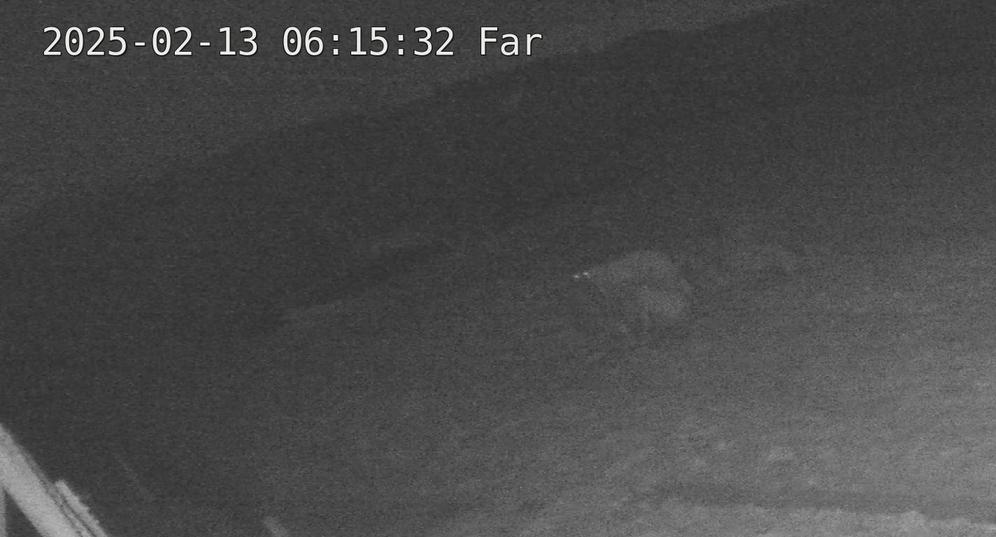
This trigger event for this event was even less clear, but you can still just make out two eyes, and bear in mind (excuse the pun), the actual view from this camera is even wider and the bear further away in a sense as this is a dynamic zoom.
13 February 2025 7:49pm
Love it! I have a few ideas.
Welcome to the Conservation Tech Training and Education Group!
31 October 2022 9:15pm
24 February 2023 2:24pm
Hi Folks,
I'm Liz Ferguson from Ocean Science Analytics and just noticing this thread so reaching out to express interest! Thanks for posting that overview Stephanie.
My company is an ocean science research consulting and online technical training company. We provide hands-on training for software, thus far related to passive acoustic monitoring and R, but have a Marine spatial analysis course coming out using QGIS in 2023. I also teach at a local college, and some analytical courses. Really interested in the group so happy you started it Suz and Andrew!
2 March 2023 2:03pm
Thank you liz! @sstathat and I are really excited about the group as well. I can imagine there are a lot of challenges with training folks to use the software. Are these software/trainings. open source and/or available online?
13 February 2025 3:13pm
Hi! I'm Connie, I'm in biomedical and have spent the past few years in Texas, working between Academia and private sector/NGO. I've been coordinating open source technology development between multiple institutions, and private sector, where I create technology and apply it in the field under for profit and non-profit labels. Generally my day is up at 6am, do tech until lunch, see friends and family for lunch, do applied bird work and training, have dinner, do tech, see friends and family in the PM, with field work trips in between.
My part-time project work under USDA Conservation Innovation Grants ends in March, freeing me up 20 hours a week to pursue pure tech development and publishing, and I'll actually have time to say hi to people again!
My biggest interest is bringing in and creating interdisciplinary early career conservationists and training self-made conservationists who have created their careers in areas with few resources and support. Sometimes, one just needs a few critical skills to get their projects off the ground. I mentor research students as well as applied conservation learning using 2,000 captive birds at a propagation aviary outside of Austin, TX, where I'm the Institutional Officer overseeing research for the IACUC.
If you need to practice collaring some birds before you do it in the middle of nowhere and spend the travel money, let me know! My bird research phone number is US and easy to remember 42 42 MAGPIE. (That's the meaning of life twice, and a magpie.)
I've hosted trainees from the Field Museum, Natura Mexicana, a load of universities in US, Europe, and South America... you do birds, you do tech, let's be buddies!!!
SPOTS Internship Programme
6 February 2025 3:38pm
Online platform for beta testing?
5 February 2025 4:20am
Webinar: Wildlife Drones’ Dragonfly – Revolutionizing VHF Tracking Technology
3 February 2025 4:31am
What Are Innovative Technologies, and Why Should Conservationists Care?
28 January 2025 3:38pm
Collaring Elephants and Post Release Monitoring
28 January 2025 3:16pm
Applied Bioacoustics in Conservation and Practice
22 January 2025 6:54am
Can/Should UAVs Be The Answer To Urbanisation & Wildlife Conflicts
20 January 2025 11:00am



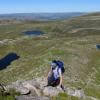







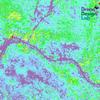









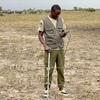















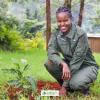







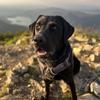








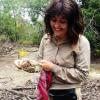
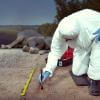

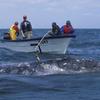







31 July 2024 7:38pm
Thank you @loveness